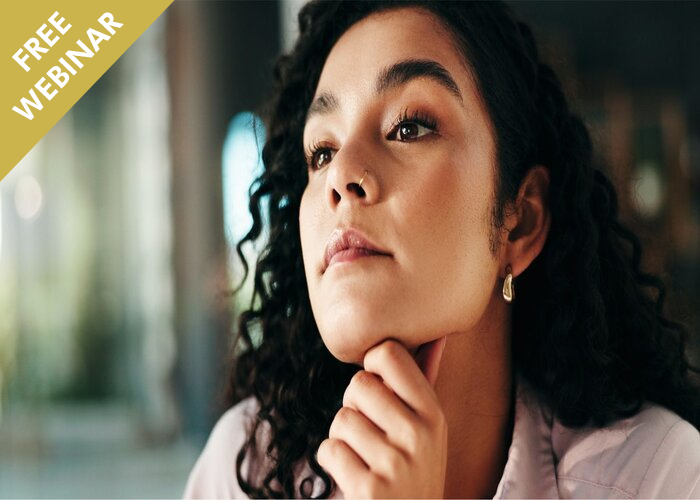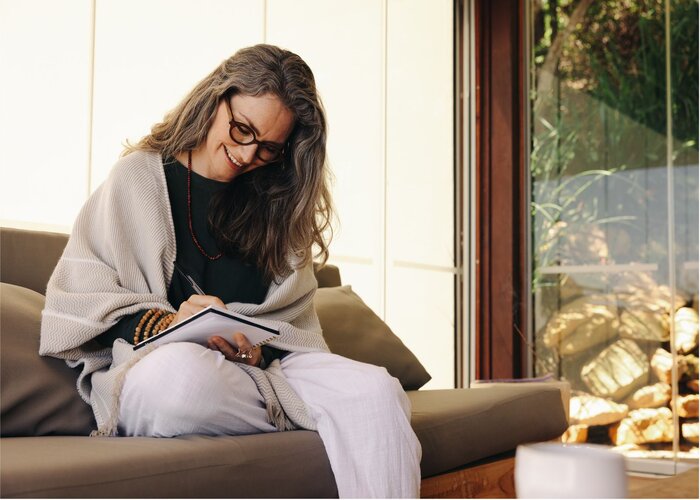Share page
Free Webinar! Curiosity in Therapy: When Stuckness Isn’t Resistance

- 7 October 2025, Tuesday
Free Webinar! Curiosity in Therapy: When Stuckness Isn’t Resistance
An Exclusive Preview with Richard Hill
Please Note:
This webinar is free, but you must add a ticket to your cart and complete the checkout process to secure your spot. You will not be asked for any card or payment details during checkout.
7 October 2025 Live Session Times:
6:00 pm – 7:00 pm, London UK
1:00 pm – 2:00 pm, New York, USA
Webinar attendance links can now be downloaded directly from your ticket.
Check what time this course will be on in your time zone with our Time Zone Checker.
For more information on how to access webinar joining links, handouts and video recordings please click here
There is no known commercial support for this programme.
£0.00
Join our Insight Circle
Earn points every time you spend and much more...
Course Credits
Speaker(s)
Course length in hours
Location
Online streaming only
Full course information
Complimentary preview session
Why do some sessions suddenly stall? Why does insight vanish, affect flatten, or a client’s eyes glaze over just as the work deepens? Too often we label this “resistance” or “avoidance.” But what if the real issue is that curiosity—the brain’s innate drive to engage, explore, and connect—has gone offline?
The Neurobiology of Engagement
Richard Hill, internationally recognised psychotherapist and co-author of The Practitioner’s Guide to the Science of Psychotherapy, proposes a radically different understanding. These flat, disconnected moments aren’t defiance—they’re signs that your client’s curiosity has gone offline.
Curiosity, Hill argues, isn’t just a therapeutic stance or personality trait. It’s a neurobiological state that governs regulation, openness, and the capacity for insight. When it shuts down, the entire therapeutic process stalls. When it comes back online, everything shifts.
What You’ll Discover in This Hour
- Simple micro-interventions you can use immediately when clients go flat or disengaged
- A first look at Dynamic Curiosity – the model Richard will teach in full during his February 2026 training
- Richard’s integrative teaching style – experience his approach before committing to the full workshop
A Rare UK Opportunity & Invitation
Richard Hill has trained practitioners across the US and Australia for over a decade, but this marks his first teaching appearance for UK and European clinicians. This complimentary preview is our way of introducing his transformative approach to the nscience community—a window into a bigger conversation about why curiosity might be the missing piece in your most challenging cases.
The Bigger Picture
This introduction previews Richard’s full two-evening training “How Curiosity Goes Offline—and the Neurobiology of Bringing It Back” (9 & 16 February 2026), where you’ll learn practical techniques to reignite curiosity in real time, use it as a co-regulatory tool, and integrate it across therapeutic modalities.
But you don’t need to commit to anything. This hour stands alone as an exploration of one of therapy’s most underappreciated dynamics.
When your client’s curiosity comes back online, everything becomes possible again.
About Richard Hill
Richard Hill, MA, MEd, MBMSc, PhD (c), is a practicing psychotherapist, author, educator, and professional supervisor. After 25 years as a professional actor and performer, he shifted to academic study spanning linguistics, social ecology, education, and the sciences of brain and mind. Currently completing doctoral research on client-responsiveness, he enjoyed a 15-year apprenticeship with Ernest Rossi (esteemed colleague of Milton Erickson), exploring psychobiology, genetics, and the complex system of being human. Richard is Science Director for CIPPS in Italy, Clinical Science Director and Managing Editor for The Science of Psychotherapy, and co-author of The Practitioner’s Guide to the Science of Psychotherapy (Norton, 2022) and The Practitioner’s Guide to Mirroring Hands (Crown House, 2017).
The Invitation
This complimentary preview is our way of introducing Richard’s transformative approach to the nscience community—not a condensed training, but a window into a bigger conversation about why curiosity might be the missing piece in your most challenging cases.
Ready to explore the full approach?
Early bird booking opens immediately after this session for “How Curiosity Goes Offline—and the Neurobiology of Bringing It Back” (9 & 16 February 2026). Preview attendees receive priority access and exclusive launch pricing.
This webinar is part of nscience global’s commitment to bringing leading international voices to UK and European therapists. Whether you’re new to neuroscience-informed practice or looking to deepen your understanding of therapeutic presence, this session offers insights you can use immediately.
© nscience 2025 / 26
What's included in this course
- Presented by world-class speaker(s)
- Handouts and video recordings
- 1 hr of professionally produced lessons
- 1 year access to video recorded version
- CPD Certificate
- Join from anywhere in the world
- Simple micro-interventions you can use immediately when clients go flat or disengaged
- A first look at Dynamic Curiosity – the model Richard will teach in full during his February 2026 training
- Richard’s integrative teaching style – experience his approach before committing to the full workshop
Learning objectives
- Simple micro-interventions you can use immediately when clients go flat or disengaged
- A first look at Dynamic Curiosity – the model Richard will teach in full during his February 2026 training
You'll also be able to...
Develop the ability to interpret and modulate the body’s nervous system (sensory and autonomic) to regulate arousal levels in clients and for safer trauma therapy
Identify and acquire recovery options and strategies for trauma clients inappropriate for trauma memory processing, particularly for those who don’t want to and those who decompensate or dysregulate from memory work
Also develop the ability to interpret and modulate the body’s nervous system (sensory and autonomic) to regulate arousal levels for professional self-care

Richard Hill, MA, MEd, MBMSc, PhD (c), is a practicing psychotherapist, author, educator, and professional supervisor. After 25 years as a professional actor and performer, he shifted to academic study spanning linguistics, social ecology, education, and the sciences of brain and mind. Currently completing doctoral research on client-responsiveness, he enjoyed a 15-year apprenticeship with Ernest Rossi (esteemed colleague of Milton Erickson), exploring psychobiology, genetics, and the complex system of being human. Richard is Science Director for CIPPS in Italy, Clinical Science Director and Managing Editor for The Science of Psychotherapy, and co-author of The Practitioner’s Guide to the Science of Psychotherapy (Norton, 2022) and The Practitioner’s Guide to Mirroring Hands (Crown House, 2017).
Program outline
3 reasons why you should attend this course
- Courses delivered by internationally renowned experts.
- Our courses are stimulating, thought-provoking, therapeutically relevant and actionable.
- Join from anywhere: all registered delegates get access to a video recording after each event.

What we offer
250+
500+
webinars delivered
100+
world-class speakers
What our customers say
Similar courses

Part of the nscience family, nscience publishing house is an independent publisher of practical, clinical-application oriented books covering the practices of psychotherapy, counselling and psychology.
Insight Circle

Join today and as a warm welcome to the Insight Circle, you’ll receive 4000 Insight credits—equivalent to £200










